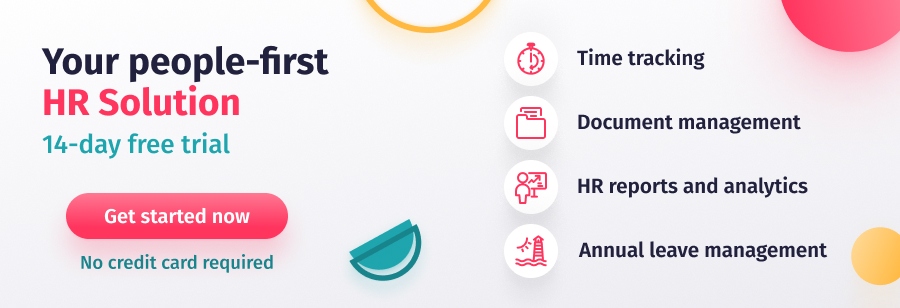Today’s job market is competitive, especially for candidates starting their careers. Recent graduates face unemployment rates of 12%, equating to over 96,000 unemployed graduates each academic year, and employers are still facing an uphill battle to find and keep talent.
Internship programmes could be the answer. They provide students and graduates with valuable work experience and skills and offer employers the chance to evaluate them in their work environment. However, the benefits of an internship programme run much more deeply than that. They can also help businesses build a positive culture, develop their talent pipeline and workforce, and help them to stay competitive by bringing in digitally native young people.
This article will cover the basics of internships and how they can benefit your talent development. We’ll be covering the following:
What is an Internship?
Internships provide students or workers with hands-on training and practical experience to enhance their employability and skills at the start of their career path. The duration of an internship varies depending on the employer, industry, and the time the intern has available. They can be both full-time and part-time.
The ultimate goal of an internship for both employers and interns should be for the intern to develop new skills and knowledge, as well as start building professional networks. They do this by working on real-life projects, attending meetings and training sessions, and receiving guidance and feedback from a supervisor or mentor.
The outcome for the intern might be academic credit, enhancing their CV, a job offer, or all of these things. At the same time, the employer benefits by gaining an extra team member who brings new skills and perspectives to the business and improves productivity.
What is an Intern?
An intern is a student or trainee who works to gain work experience or fulfil a qualification’s requirements.
In 2018, there were an estimated 70,000 interns in the UK workforce. The pandemic may have reduced these numbers, but the current climate, cost of living crisis, and competitive job market will undoubtedly encourage more young people to seek internships to help them get onto the career ladder.
Interns generally come from these groups:
- High school or college students
- Undergraduate students
- Graduate students
- International students
- Career-changing professionals.
What are the Different Types of Internship Programmes?
You need to be aware of two main types of internships as an employer, paid and unpaid.
Paid internships
Paid interns receive a salary or stipend for their work. Paying interns is a legal requirement if they are classified as workers or employees. They must receive at least the national minimum wage for their time.
You are legally required to pay interns when:
- They have a contract outlining the nature of their work.
- They are required to go to work even if they don’t want to.
- The employer has work for them to do.
- They are promised a work contract in the future.
Unpaid internships
Unpaid internships have been the subject of controversy in recent years after some businesses were seen to be taking advantage of the system and exploiting interns for free work. There is now stricter enforcement of the rules around internships. We’ll talk about this more later on.
Some criteria allow unpaid internships, however. These are:
- The internship lasts less than a year and forms part of higher education.
- Volunteering at a charity or voluntary organisation.
- The internship consists of only shadowing and with no requirement to produce any work.
Once you’ve established whether your programme will be paid, you can start to consider the kind of interns your business might want to attract. Here are some examples of the internship opportunities young people are looking for:
- Co-op or academic internships: Academic internships are typically offered by educational institutions and are designed to provide students with hands-on experience in their chosen field. Co-op or cooperative internships are similar, forming part of a student’s academic programme and requiring the intern to work full-time for a set period.
- Summer internships: These are usually full-time positions that occur during the summer months when students are between school and university or during university holidays.
- Virtual internships: Remote internships became popular during the pandemic. They allow interns to participate remotely and are still prevalent today as they have been able to expand opportunities to those living in geographically remote areas.
- International internships: These allow interns to gain experience working in another country.
- Corporate Internships: Generally offered by corporations and can provide interns with experience in various departments such as marketing, finance, and human resources.
- Non-Profit Internships: These give internship experience in the non-profit sector. Non-profits and charities can represent a grey area when it comes to paying interns, as they could be classed as volunteers. However, the government has been much stricter in recent years, cracking down on companies seen to be exploiting loops holes in the internship system.
- Government Internships: These are offered by government agencies and can provide interns with experience in various areas such as policy, law, and public administration.
- Work experience: This usually refers to school-age children and lasts only a couple of weeks.

What Should an Internship Offer?
For an internship to be successful, the intern’s experience needs to be positive and allow them to gain relevant skills in a particular job or industry. For your internship programme to thrive, you must ensure it delivers some critical outcomes for those participating.
Learning Objectives and Goals
Remember, an internship is the first step in someone’s career journey and often represents a first professional job. Setting learning objectives and goals will help your business get what it needs from the intern while ensuring the internships provide the career guidance and skills development required.
These should be measurable expectations that allow your interns to gain the experience they need to demonstrate their acquired knowledge and skills.
Management and Guidance
Interns should expect guided supervision by a professional with related work experience in the field throughout their internship experience. Continuous observation will allow for a clear evaluation of their progress and regular opportunities for feedback and growth.
Personal Development
An internship should always focus on personal, as well as professional development. Whatever career path someone is on, alongside the roles’ practical aspects and technical skills, they should also be developing a soft skill set, including people skills, time management, problem-solving, and empathy.
Professional Experience
If an intern is looking to break into a particular career, experience in that professional environment through an internship helps to build confidence in dealing with real-life situations or using industry tools combined with theoretical knowledge.
Networking Opportunities
Internships should provide an opportunity to build professional relationships and to start building a professional network. These are invaluable for young people in helping develop their interpersonal communication skills and for when they are looking for employment opportunities in the future.
Mentorship
Interns often work closely with a supervisor or mentor who can share their acquired experience and give guidance, feedback, and career advice. This can help interns start forming their career goals and better understand the industry, the company, and the real-world environment in an informal way.
Potential for Employment
Internships shouldn’t just be for the sake of it; there should always be an opportunity for a permanent job offer at the end. The possibility of a permanent position ensures both the intern and the employer take the time seriously and both invest in the process.

What are the Benefits of an Internship?
Internships can form an integral part of any talent development strategy. Here are some of the key benefits a programme can bring your business:
1. Future-proof your workforce
An internship programme can act as a pipeline to attract, identify and train future employees. It allows businesses to check out talent while reducing recruitment and training costs.
2. Discover new and hidden talent from an alternative pool
Essentially internships give businesses access to the future talent pool before they’ve entered the job market. Research from the National Association of Colleges and Employers found that 60% of paid internships became permanent jobs.
3. Mentoring and leadership opportunities for current employees
An internship programme can also benefit your current employees, helping them develop their professional skills. Managing interns can provide a fantastic opportunity for employees to develop their management and mentoring skills and share their knowledge and skills with interns.
4. Build the employer brand
Internships can help build positive brand awareness for businesses among the student population and young people entering the workforce. A good intern experience with a company can boost its reputation and can be shared widely peer-to-peer and on social media.
5. Diverse perspectives from a different generation
Those on work experience or internship programmes often bring fresh perspectives and new ideas into a business, fuelling innovation and giving companies a competitive edge.
6. Support your teams and improve productivity
Hiring interns means more hands on deck. They can often take on tasks and projects that might ordinarily get sidelined because, where it might be time-consuming for your current employees, it will give the intern access to valuable practical experience in the work environment. They can also support your current teams’ workload.
7. Gain new insight into the latest trends and social media management
Social media trends move rapidly, and the younger generation is at the centre of that movement. This makes interns uniquely able to provide insight and perspective into navigating them.
8. Improve employee retention
The career development opportunities and positive company culture brought about by an internship programme can also help improve employee retention. One study found that more than half of employers that hired employees as interns had a higher than five-year retention rate.
What are the Rules around Internships?
In the UK, internships are not legally defined or covered in their own right in Employment Law. They are, however, covered by the Equality Act 2010. You can read more about employment rights and pay for interns on the government’s website, but their employment status essentially determines interns’ rights.
- Worker: Workers have to turn up for work even when they don’t want to, and there is work for them to do for the duration of their arrangement. Even if it isn’t written, there will be an arrangement or contract for their services.
- Volunteer: This is when someone volunteers their time to work for a charity, voluntary organisation, associated fundraising body, or statutory body.
- Employee: This is someone who works under an employment contract – remember, this doesn’t necessarily need to be formal or in writing. Contracted interns are entitled to employment rights such as sick pay and holiday pay.
Interns must be paid at least the National Minimum Wage if they are considered workers or employees. Volunteers are legally entitled to minimum wage if paid anything outside reasonable travel or lunch expenses.
The minimum wage is currently £10.42 per hour for workers aged 23 and over, £10.18 per hour for workers aged 21 to 22, £7.49 per hour for workers aged 18 to 20, and £5.28 for apprentices or those under 18.
Whatever their status, interns must not be discriminated against based on age, sex, race, religion, sexual orientation, gender reassignment, marriage or civil partnership, pregnancy or maternity, or disability.




